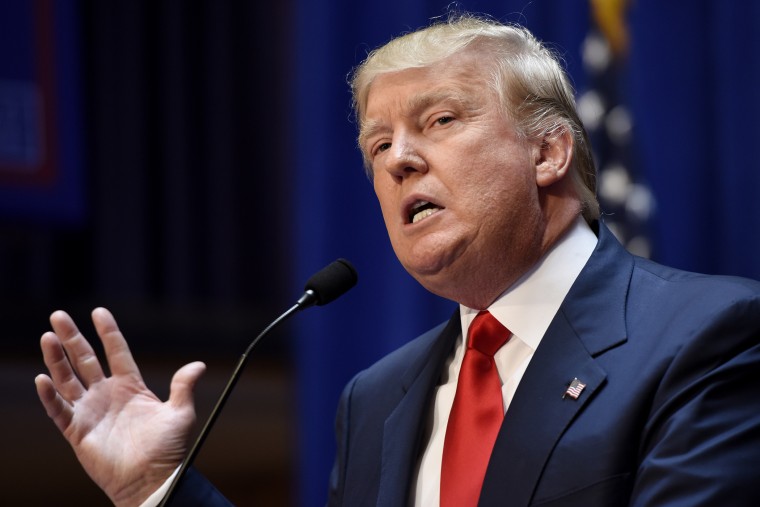A few days ago, Republican presidential hopeful Donald Trump unveiled an actual immigration policy, which included a striking provision: "End birthright citizenship."
As regular readers know, the 14th Amendment to the Constitution doesn't leave much in the way of wiggle room: the rights of American citizenship are given to "all persons born or naturalized in the United States." The principle of birthright citizenship has been upheld by the Supreme Court many times since its enactment following the Civil War.
But Trump has a problem with the constitutional language -- and soon after, roughly half of the GOP presidential field expressed their own opposition to the 14th Amendment's guarantee.
There are all kinds of angles to a story like this -- legal, political, social, and moral -- but it's also hard not to wonder about the practical considerations. If the Constitution says those born in the United States are citizens of the United States, what exactly does Trump intend to do about it? Last night, as Politico reported, the answer came into sharper focus.
Under the 14th Amendment, [Fox News' Bill O'Reilly] told Trump on "The O'Reilly Factor," mass deportations of so-called birthright citizens cannot happen. Trump disagreed, and said that "many lawyers are saying that's not the way it is in terms of this."
As ridiculous as this may seem, don't just roll your eyes at this and move on. Trump's wrong, but his argument is poised to become a lot more common.
Indeed, many assumed that Trump envisions a constitutional amendment to end birthright citizenship. He does not. What Trump actually has in mind is a court fight in which he and his lawyers challenge the legality of constitutional language.
Politico's headline, "Trump to O'Reilly: The 14th Amendment is unconstitutional," is probably excessive, but only a little.
There's an apparent contradiction at the heart of Trump's immigration plan: he says he'd never break up a family, but he also says literally every undocumented immigrant must be rounded up and deported. Since some undocumented parents have U.S.-born children, those tenets are in conflict: a Trump administration would either separate children from their families or it would end up deporting American citizens.
Except, Trump rejects the contradiction, because as far as he's concerned, people born in the United States aren't necessarily citizens of the United States. From the Politico piece:
"What happens is, they're in Mexico, they're going to have a baby, they move over here for a couple of days, they have the baby," Trump said, telling O'Reilly that the lawyers said, "It's not going to hold up in court, it's going to have to be tested."
The GOP candidate went on to say "some very, very good lawyers" -- he didn't name any -- agree with Trump that some people born in the United States "do not have American citizenship," even if the 14th Amendment says otherwise.
Trump could try to push for a constitutional change, but he'd prefer a shortcut. "It's a long process, and I think it would take too long," he said last night. "I'd much rather find out whether or not anchor babies are citizens because a lot of people don't think they are."
And why is all of this necessary? Because according to the Republican leading in every poll, "We have to start a process where we take back our country. Our country is going to hell."
